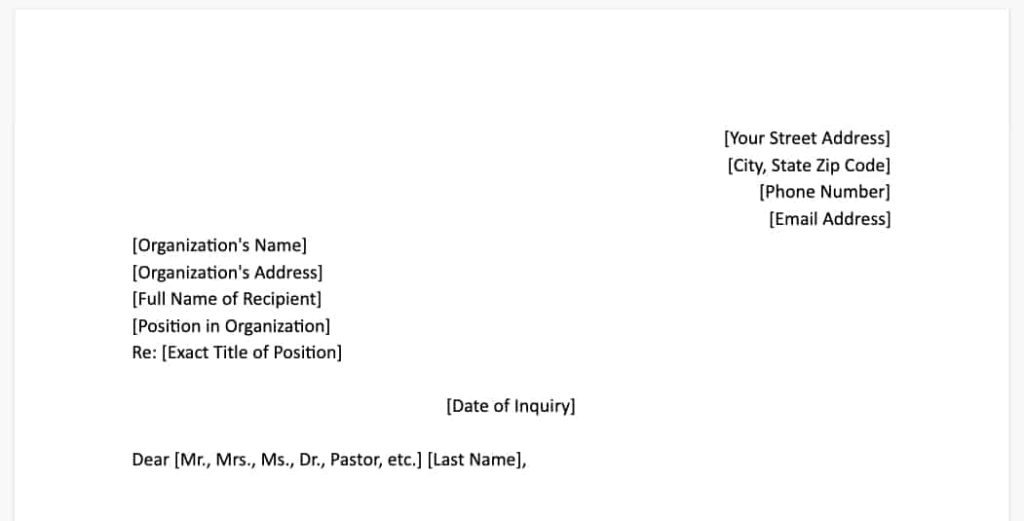When you’re contacting potential employers, your cover letter acts as your first impression. Make sure it’s a good one! Here are some pointers to crafting an effective cover letter from Teri Catanio.
A successful business owner needs to make a new hire. She looks at her stack of applications, sifting through to find the right person to join her team. Your application sits among them, filled with reasons why you’re the right one for the job.
How will you show you’re qualified? What will give the employer her first impression of you?
The cover letter is often overlooked as an unimportant formality. But it’s not—it’s an introduction of who you are and why you are best for the position. A well-done cover letter can be an effective first step to get you in the running for the job you want.
Craft the perfect cover letter by implementing the best practices below.


The Header
- Put your contact information in the top right corner of the document. Include your email address and phone number.
- Insert the name of the organization on the next line on the left side of the document. Also include the organization’s full mailing address.
- Make sure you know the full name and title of the person who will receive this correspondence.
- The next line is “Regarding” [Re:] which is an indication of the position. Here, include the exact title of the position for which you are applying.
- Center the date of your inquiry on the next line.
The Salutation
Start with the English convention, Dear (Mr., Mrs., Ms., Dr., Pastor, etc.) followed by a comma.
The Body
Now you’re ready to develop the body of the cover letter. Keep it simple and use concise language. As a rule of thumb, I prefer the three-paragraph method:
Paragraph 1:
State how you learned about the position (i.e., a friend, colleague, job site, company webpage, etc.). Companies often want to know so they can use these types of advertising networks going forward. In addition, let the hiring person(s) know of your interest in the position and that the documents you have included are for their consideration.
Paragraph 2:
Clearly state your skills and qualifications for the position. Provide a brief example of an internship or any work experience that matches the position in some way. In other words, show the hiring person(s) how your skills fit within the framework of the position.
This is also a good space to briefly explain any discrepancies, such as leaving a position or periods of unemployment. Keep the explanation positive and direct. If you’re currently in a position you are not happy with, say what the new position offers that current job might not. For example, “This position offers an opportunity for me to use project management skills,” or “This position offers a better opportunity for creativity and autonomy.” Show what the new position does offer you, not what the old position doesn’t.
Paragraph 3:
Reiterate your interest in the company and the position, but most importantly, ask for an interview. Let the hiring person(s) know you are appreciative of their time and consideration, and that you look forward to meeting them.
Do not make the mistake of telling them when and how to reach you in this closing paragraph. You already included that at the very top of the letter.


The Complimentary Close
The closing line of a cover letter should be straight forward and professional. Again, keep it simple. Examples of appropriate phrases include: “Looking forward to meeting you soon,”; “Sincerely,”; “Best Regards,” etc. The next and final line will include your full name.
Ultimately, cover letters are a great space to express your strong interest in an employment opportunity. However, I caution you to be thoughtful when writing this letter; here, employers get a glimpse of your command of language, grammar, and writing style. Keep it simple and concise, but don’t forget to run spell check or ask a friend to edit before you hit send.
With these tips, you’ll be sure to make a good first impression on your potential new employer.





